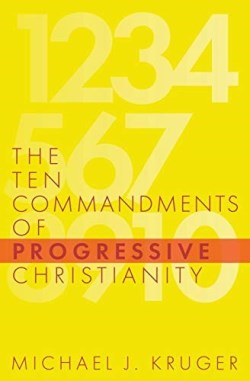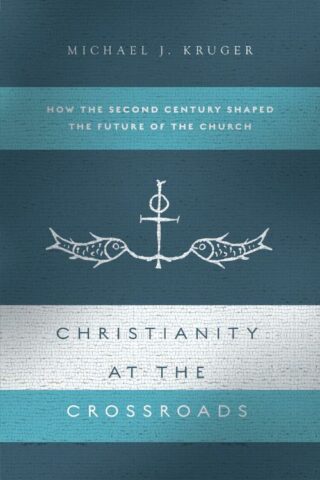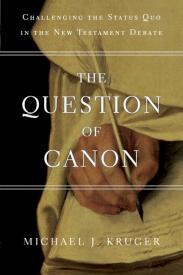Michael Kruger
Showing all 3 results
-
10 Commandments Of Progressive Christianity
$7.99Add to cartA cautionary look at ten dangerously appealing half-truths.
In 1923, J. Gresham Machen, then a professor at Princeton Seminary, wrote his classic text, Christianity and Liberalism. The book was a response to the rise of liberalism in the mainline denominations of his own day. Machen argued that the liberal understanding of Christianity was, in fact, not just a variant version of the faith, nor did it represent simply a different denominational perspective, but was an entirely different religion. Put simply, liberal Christianity is not Christianity.
What is remarkable about Machen’s book is how prescient it was. His description of liberal Christianity–a moralistic, therapeutic version of the faith that values questions over answers and being “good” over being “right”–is still around today in basically the same form. For this reason alone the book should be required reading, certainly for all seminary students, pastors, and Christian leaders.
Although its modern advocates present liberal Christianity as something new and revolutionary, it is nothing of the sort. It may have new names (e.g., “emerging” or “progressive” Christianity), but it is simply a rehash of the same well-worn system that has been around for generations.
The abiding presence of liberal Christianity struck me not long ago when I came across a daily devotional from Richard Rohr that listed ten principles he thinks modern Christianity needs to embody. These ten principles are actually drawn from Philip Gulley’s book, If the Church Were Christian: Rediscovering the Values of Jesus. In that devotional series, ironically titled “Returning to Essentials,” Rohr sets forth the ten principles as a kind of confessional statement of modern liberalism (while at the same time pretending to deplore confessional statements). They are, in effect, a Ten Commandments for progressive Christianity.
Indeed, these ten sound like they were gathered not so much on the mountaintop as in the university classroom. They are less about God revealing his desires and more about man expressing his own–less Moses, more Oprah.
But take note: each of these commandments is partially true. Indeed, that is what makes this list, and progressive Christianity as a whole, so challenging. It is a master class in half-truths that sound appealing on the surface until you dig down deeper and really explore their foundations and implications. Benjamin Franklin was right when he quipped, “Half the truth is often a
-
Christianity At The Crossroads
$32.00Add to cartChristianity in the twenty-first century is a global phenomenon. But in the second century, its future was not at all certain.
Initially Christianity possessed little social or cultural influence and found itself fighting for its life. While apostolic tradition was emerging as a “rule of faith,” factions contested the nature of the gospel, and pagan philosophers found its claims scandalous. And while its pathway was tenuous, Christianity was forming structures of leadership and worship, and a core of apostolic texts was emerging as authoritative. But it was the challenges, obstacles, and transitions faced by Christians in the second century that, in many ways, would determine the future of the church for the next two millennia. It was a time when Christianity stood at a crossroads.
Michael Kruger’s introductory survey examines how Christianity took root in the second century, how it battled to stay true to the vision of the apostles, and how it developed in ways that would shape both the church and Western culture over the next two thousand years. Christianity at the Crossroads provides an accessible and informative look at the complex and foundational issues faced by an infant church still trying to determine its identity. The church’s response to the issues of heresy and orthodoxy, the development of the canon, and the transmission of the Christian Scriptures not only determined its survival, but determined the kind of church it would be for generations to come.
-
Question Of Canon
$30.00Add to cartPreface
Abbreviations
Introduction1. The Definition Of Canon: Must We Make A Sharp Distinction Between The Definitions Of Canon And Scripture?
2. The Origins Of Canon: Was There Really Nothing In Early Christianity That May Have Led To A Canon?
3. The Writing Of Canon: Were Early Christians Averse To Written Documents?
4. The Authors Of Canon: Were The New Testament Authors Unaware Of Their Own Authority?
5. The Date Of Canon: Were The New Testament Books First Regarded As Scripture At The End Of The Second Century?
Additional Info
Unlike many books on the New Testament canon, this book does not seek to explain Why these books and no others? It asks the question Why is there a NT at all? Was the notion of a canon of literature out of sync with the earliest Christian movement? Michael Kruger challenges commonly held views on the emergence of the NT canon.



